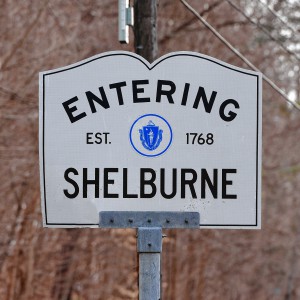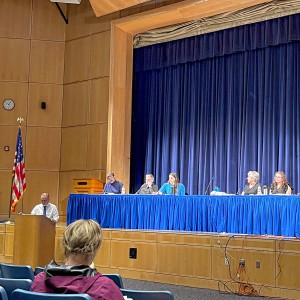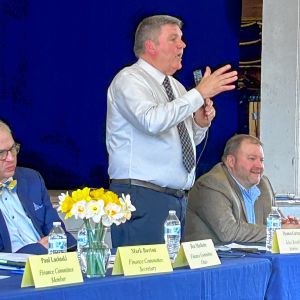Beacon Hill Roll Call: April 15 to April 19, 2024

The House, 120-38, and Senate, 37-3, approved different versions of a bill that would change some of the state’s gun laws, including limiting the carrying of guns into public places such as schools, polling places, government buildings and the private residences of others, with an exemption for law enforcement. STAFF FILE PHOTO/PAUL FRANZ
| Published: 04-26-2024 1:44 PM |
There were no roll calls in the House or Senate last week.
This week, Beacon Hill Roll Call records local senators’ and representatives’ votes on bills that are currently in separate House-Senate conference committees, which are trying to hammer out a compromise version of each bill following House and Senate approval of different versions. The members of a conference committee are appointed by the Senate president and House speaker.
Once a conference committee works out a compromise version, the full House and Senate vote on that version, which then goes to the governor for her signature if it passes.
Here are some bills currently in conference committees, or soon to be in a conference committee, and how senators and representatives voted on the version originally approved by each branch.
The House, 121-33, and Senate, 32-8, approved different versions of a supplemental budget that includes an additional $250 million in funding for the Emergency Assistance Program that funds the emergency family shelter system.
Other provisions keep in place some pandemic-era programs, set to expire, including allowing restaurants to sell beer, wine and cocktails for takeout and expanding outdoor dining.
The bills have been in conference committee since March 28.
A “Yes” vote is for the budget. A “No” vote is against it.
Article continues after...
Yesterday's Most Read Articles
 Bridge of Flowers in Shelburne Falls to open on plant sale day, May 11
Bridge of Flowers in Shelburne Falls to open on plant sale day, May 11
 Serious barn fire averted due to quick response in Shelburne
Serious barn fire averted due to quick response in Shelburne
 $12.14M school budget draws discussion at Montague Town Meeting
$12.14M school budget draws discussion at Montague Town Meeting
 As I See It: Between Israel and Palestine: Which side should we be on, and why?
As I See It: Between Israel and Palestine: Which side should we be on, and why?
 Greenfield homicide victim to be memorialized in Pittsfield
Greenfield homicide victim to be memorialized in Pittsfield
 ‘We are among the leaders’: Ashfield Town Meeting voters pass bevy of clean energy proposals
‘We are among the leaders’: Ashfield Town Meeting voters pass bevy of clean energy proposals
Rep. Natalie Blais — Yes
Rep. Aaron Saunders — Yes
Rep. Susannah Whipps — No
Sen. Joanne Comerford — Yes
Sen. Paul Mark — Yes
The House, 154-0, and Senate, 39-0, approved different versions of a bill that would leverage the interest from the state’s Rainy Day Fund to better compete for federal dollars, to ensure the state receives the maximum possible share of federal funds and to pay down the state’s long-term debt liabilities. The Rainy Day Fund now has a historic balance of $8.2 billion.
The bills have been in conference committee since March 25.
A “Yes” vote is for the bill.
Rep. Natalie Blais — Yes
Rep. Aaron Saunders — Yes
Rep. Susannah Whipps — Yes
Sen. Joanne Comerford — Yes
Sen. Paul Mark — Yes
The House, 120-38, and Senate, 37-3, approved different versions of a bill that would change some of the state’s gun laws, including limiting the carrying of guns into public places such as schools, polling places, government buildings and the private residences of others, with an exemption for law enforcement. Another provision would crack down on the spread of ghost guns — unserialized and untraceable firearms.
The bills have been in conference committee since Feb. 29.
A “Yes” vote is for the bill. A “No” vote is against it.
Rep. Natalie Blais — Yes
Rep. Aaron Saunders — No
Rep. Susannah Whipps — No
Sen. Joanne Comerford — Yes
Sen. Paul Mark — Yes
The House, 148-8, and the Senate, 38-1, approved different versions of a bill, dubbed the Frances Perkins Workplace Equity Act, which would require employers with 25 or more employees to disclose a salary range when posting a job position.
The bills have been in conference committee since Oct. 30.
A “Yes” vote is for the bill.
Rep. Natalie Blais — Yes
Rep. Aaron Saunders — Yes
Rep. Susannah Whipps — Yes
Sen. Joanne Comerford — Yes
Sen. Paul Mark — Yes
The House, 151-0, and Senate, 40-0, approved different versions of a bill that would prohibit the posting of sexually explicit images of another person online without their permission — commonly referred to as “revenge porn.” The practice is often used by ex-spouses or ex-partners.
Massachusetts is one of only two states that does not have a law about this crime. The measure makes it illegal to do so and establishes a sentence of up to 2.5 years in prison and/or a fine of up to $10,000; increases the upper limit of the fine for criminal harassment from $1,000 to $5,000; and allows a victim to petition the court for a harassment prevention order against a person who has violated this statute.
Another provision changes current law under which minors, under 18 years of age, who share explicit images of themselves or other minors, can be charged with violating Massachusetts child pornography laws and are required to register with the Sex Offender Registry. The bill allows minors to be diverted to an educational program that would provide them with information about the consequences of posting or transmitting indecent visual depictions of minors.
This bill has not yet been sent to a conference committee because the Senate has not yet appointed its members of a conference committee.
A “Yes” vote is for the bill.
Rep. Natalie Blais — Yes
Rep. Aaron Saunders — Yes
Rep. Susannah Whipps — Yes
Sen. Joanne Comerford — Yes
Sen. Paul Mark — Yes
The House gave initial approval to a bill that would expand the current law that provides a property tax abatement to the surviving spouses of police officers and firefighters “killed in the line of duty.” The bill provides that the abatement also go to the families of officers who “died in the line of duty.”
“Killed in the line of duty” has a limited definition usually meaning the individual lost their life in an incident, accident or due to violence that are directly related to their service. “Died in the line of duty” is broader and can account for a number of medical emergencies like stroke or heart attack.
“This legislation honors the sacrifice of our brave police and firefighters,” said sponsor Rep. Paul McMurtry, D-Dedham. “This simple language change will assure that surviving family members receive the tax benefit they are deserving of and what I believe was the original intention of the exemption.”
The House gave initial approval to legislation that would promote urban agriculture and horticulture by allowing Gateway Cities as well as cities and towns with populations of more than 50,000 to exempt from property taxes any land of 2 acres or less that is used for commercial urban agriculture and horticulture. Additionally, the parcel must have had at least $500 in gross sales of agricultural or horticultural products in the prior year to be eligible for the tax exemption.
“Rep. Vanna Howard, D-Lowell, and I filed this bill together to support small-scale urban agriculture, which expands access to healthy food and promotes economic growth in cities,” said co-sponsor Rep. Hannah Kane, R-Shrewsbury. “In addition to these benefits, urban agriculture also improves environmental health and makes local food systems more resilient. By incentivizing urban agriculture, this bill will help cities obtain the benefits of these operations.”
The House gave initial approval to legislation that would allow cities and town to double the maximum fine for some parking violations. Current law sets a maximum fine for many violations at $50 if paid within 21 days, $55 if paid after 21 days and $75 if paid after the parking clerk reports the parking offense and fine to the Registry of Motor Vehicles.
The bill increases the fines to $100 if paid within 21 days, $110 if paid after 21 days and $150 if paid after the parking clerk reports the parking offense and fine to the Registry of Motor Vehicles.
Rep. Susan Gifford, R-Wareham, the bill’s sponsor, said the current maximum fines have not been changed since 2004, nearly 20 years ago. “This bill does not establish any minimum fines or mandate an increase in any existing fines,” Gifford said. “It merely gives communities the option to adopt policies that better suit local needs and enforcement priorities.”
The Revenue Committee held a hearing on a measure that would allow cities and towns to abolish the local property tax and replace it with both a personal and business income tax to fund the local city or town’s budget.
The bill was filed by Rep. James Arciero, D-Westford, at the request of a constituent, under the state law that allows citizens to request their local legislator file a bill on the constituent’s behalf. These bills are known as “by request” bills and do not necessarily have the support of the legislator who filed it.
“This bill was filed at the request of Mr. Peter Barbella of Littleton who is interested in ways to decrease the real estate tax burden on seniors who typically are on a fixed income,” Arciero said. “He feels this would help seniors, who in many cases have already paid taxes for many years to their local town government, to stay in their long-term residence instead of being forced out by rising real estate tax rates. This bill would essentially allow a municipality to change from a revenue stream based on real estate taxation by replacing it with both a personal and business income tax to support a local town’s budget.”
Another bill heard by the Revenue Committee would increase from $457 to $1,800 the amount of the real estate tax exemption for blind residents.
Supporters said this exemption has remained at $437 for more than 20 years and has not provided the intended benefit to blind residents.
“I sponsored this bill after being made aware of this issue by a constituent who had received this tax abatement for most of his life,” said sponsor Rep. Angelo Puppolo, D-Springfield. “It does not make sense for a benefit such as this one to lose its value with the US dollar. The figure should be updated to reflect the proportional assistance that was intended to be given to blind residents.”

 Community Legal Aid expands Disability Benefits Project to Franklin County
Community Legal Aid expands Disability Benefits Project to Franklin County Wear Orange organizers prepare display to remember gun violence victims
Wear Orange organizers prepare display to remember gun violence victims Deerfield candidates, Whately incumbent discuss issues with voters at South County Senior Center
Deerfield candidates, Whately incumbent discuss issues with voters at South County Senior Center
